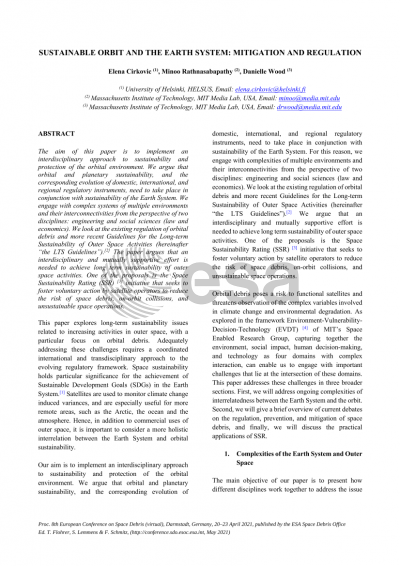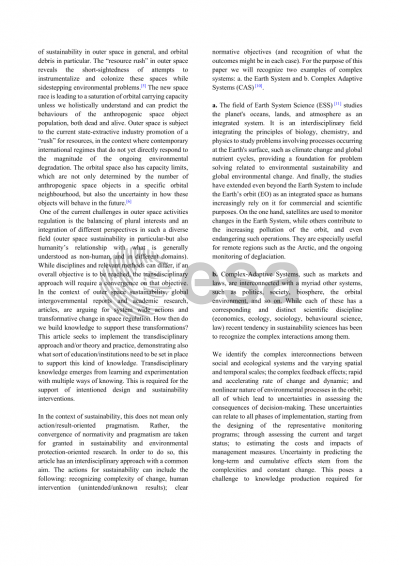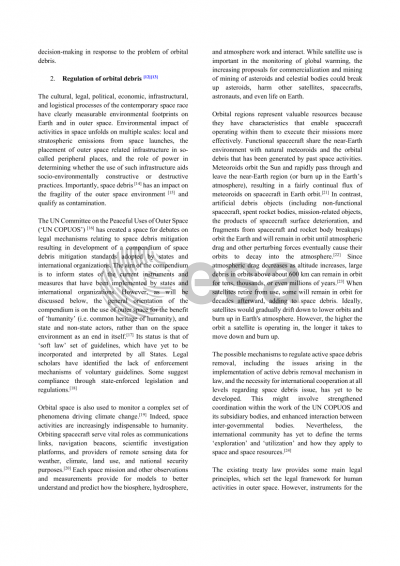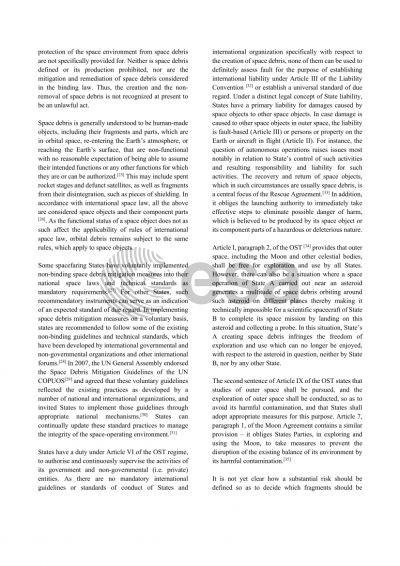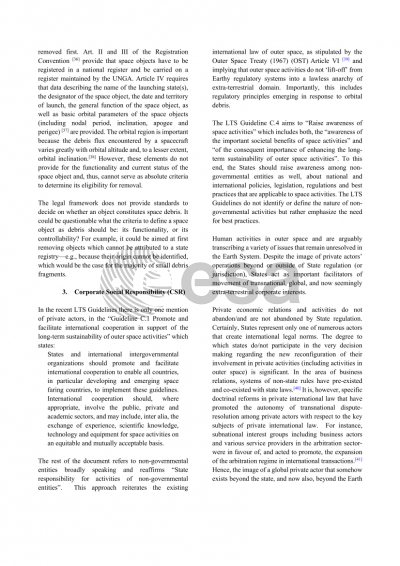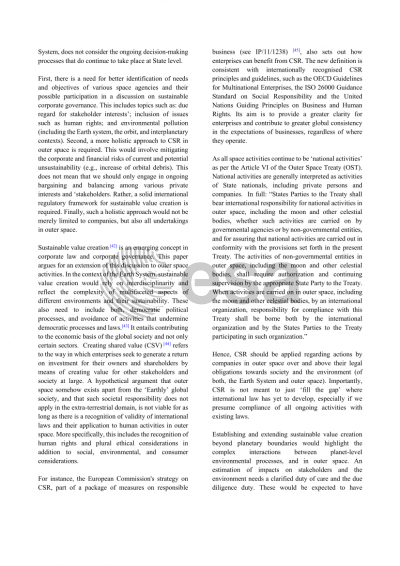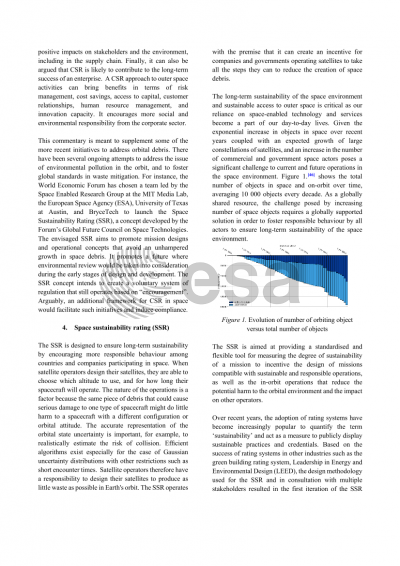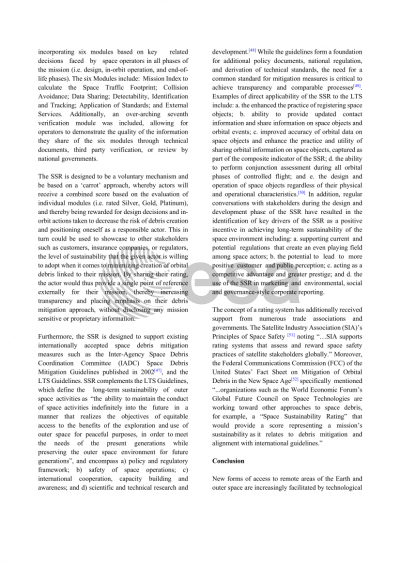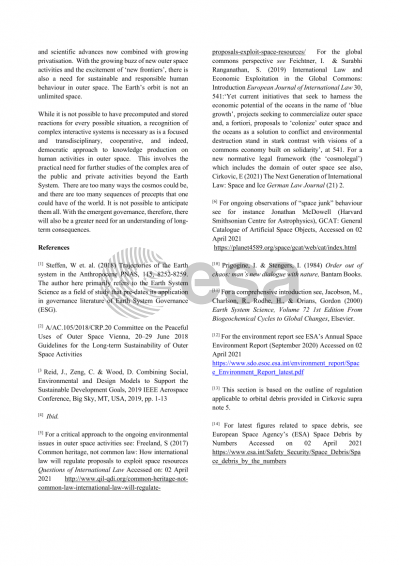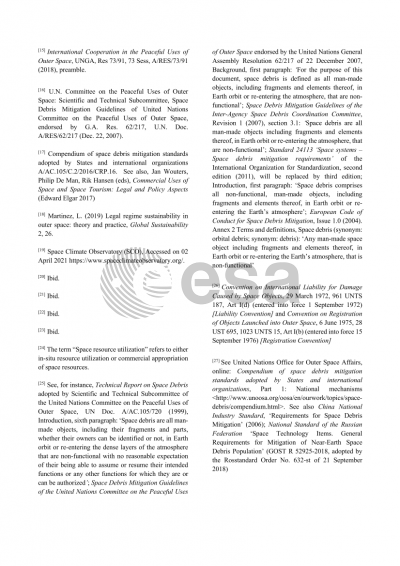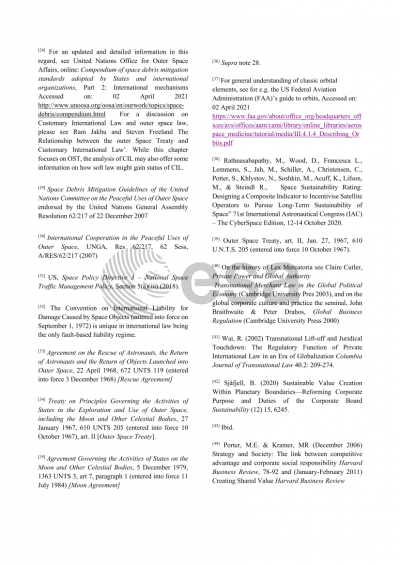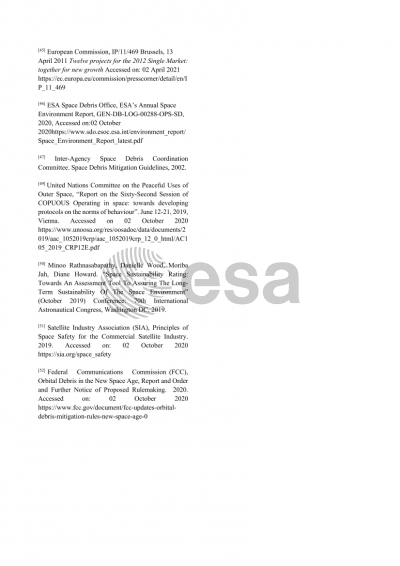Document details

Abstract
This paper explores long-term sustainability issues related to increasing activities in outer space, with a particular focus on orbital debris. Adequately addressing these challenges requires a coordinated international and transdisciplinary approach to the evolving regulatory framework. Space sustainability holds particular significance for the achievement of Sustainable Development Goals (SDGs). Satellites are used to monitor climate change-induced variances and are especially useful for more remote areas, such as the Arctic, the ocean, and the atmosphere.
This paper aims to implement the proposal that orbital and planetary sustainability and the corresponding evolution of domestic, international, and regional instruments need to take place in the context of a promotion of Earth System sustainability. It also presents how a collaborative and transdisciplinary effort can address these challenges. This process would require inclusion of knowledge beyond the state-centric approach of international lawmaking and expanding Earth System sustainability models (Reduce, Reuse, Recycle; circular economies; Ecological Restoration; etc.) to encompass Earth’s orbits.
Due to the intensification of commercial uses of outer space, and open argumentation for the ‘colonization of outer space’, new regulation will need to account for the legacy of colonial experiences and the importance of indigenous knowledge for sustainable Earth and outer space. Traditional environmental knowledge (TEK) of the world’s indigenous peoples would need to gain a more equal status in the decision-making processes in order to enable this knowledge to be applied to the design of more sustainable practices for human operations in space. An important aspect of TEK is that it recognizes equality between human and nonhuman lives and spaces (the Earth System and outer space), and as such, challenges the more utilitarian approaches evident in mainstream proposals
Orbital debris poses a risk to functional satellites and threatens observation of the complex variables involved in climate change and environmental degradation. As explored in the framework EVDT (Environment-Vulnerability-Decision-Technology) of MIT’s Space Enabled Research Group, capturing together the environment, social impact, human decision-making, and technology as four domains with complex interaction, can enable us to engage with important challenges that lie at the intersection of these domains. The paper provides three approaches to these challenges. Section One looks at the different ontologies of outer space. It introduces the questions of traditional indigenous knowledge and increasing proposals for legal recognition of actors “beyond the human”. It then moves to two practical proposals for addressing sustainability in outer space and sustainable uses of outer space. Section Two will address the Space Sustainability Rating (SSR), a newly proposed incentive system designed to reward satellite operators that take actions to reduce space debris, in the context of international coordination bodies, regulation, and norms of behaviour, as well as the role of SSR in supporting existing long-term sustainability guidelines. Section Three argues that the space community may turn to terrestrial models aiming to manage this intersection in a sustainable manner. The application of models like the three “R’s” of sustainability (Reduce, Reuse, Recycle), initializing a circular economy, and tenets from the ecological restoration are explored in this paper.
Hence, to foster the exchange of best practices in the use of outer space and space applications for concrete climate change mitigation and/or climate-related adaptation activities, this paper argues for a more inclusive epistemic approach to norm production and lawmaking.
Preview
